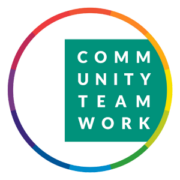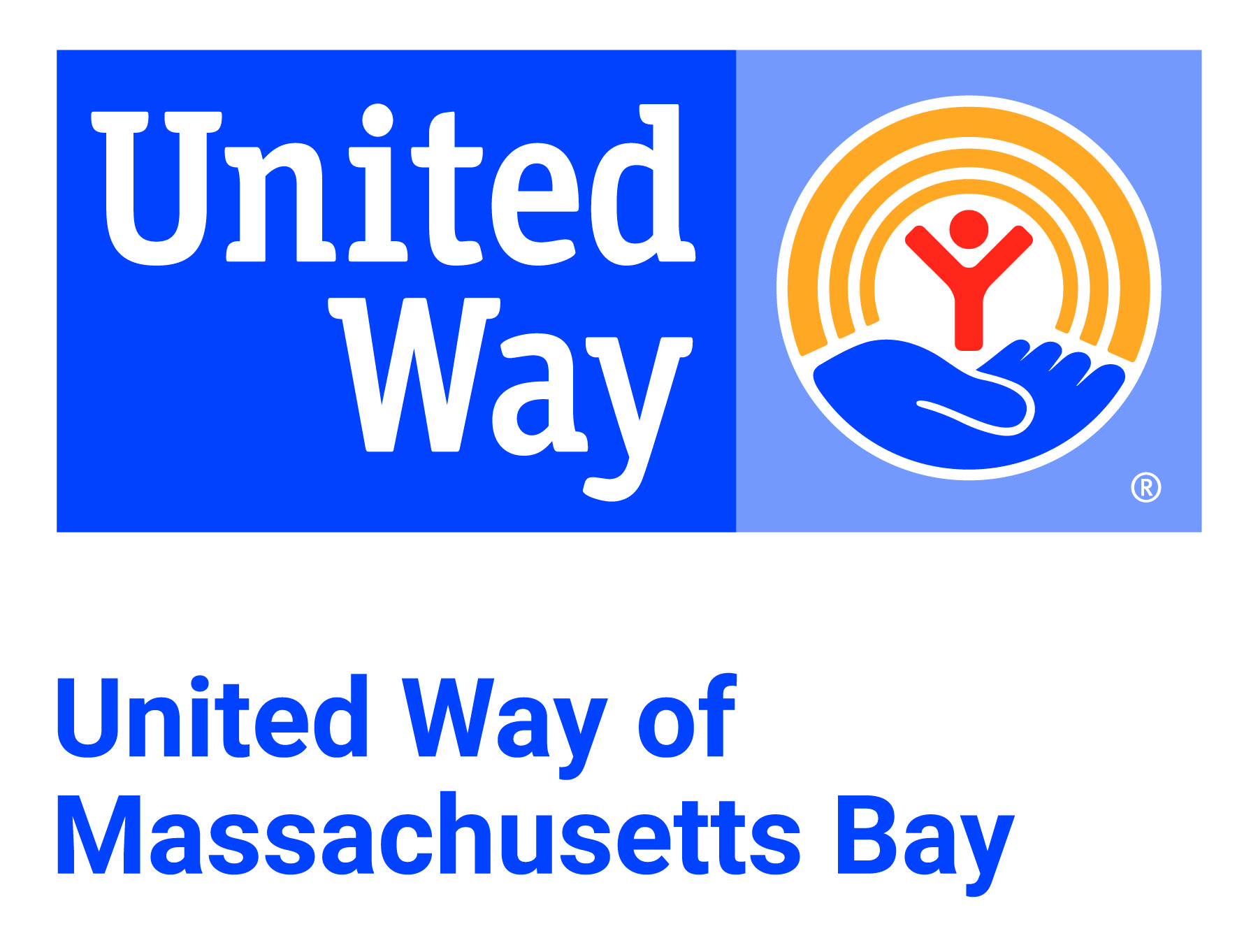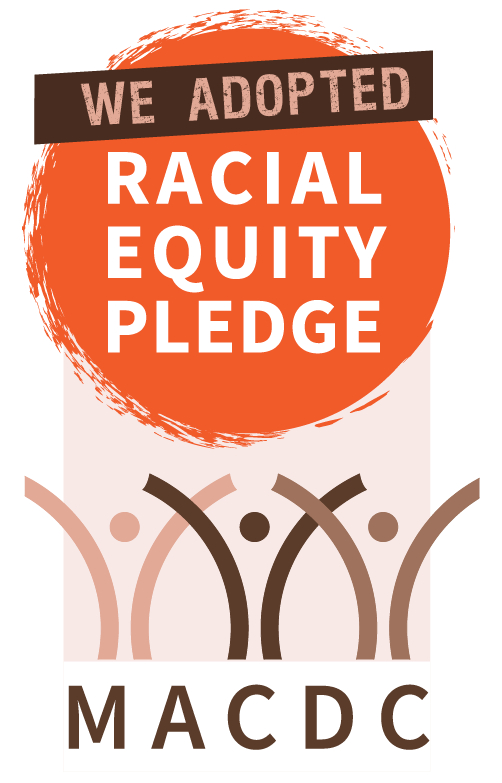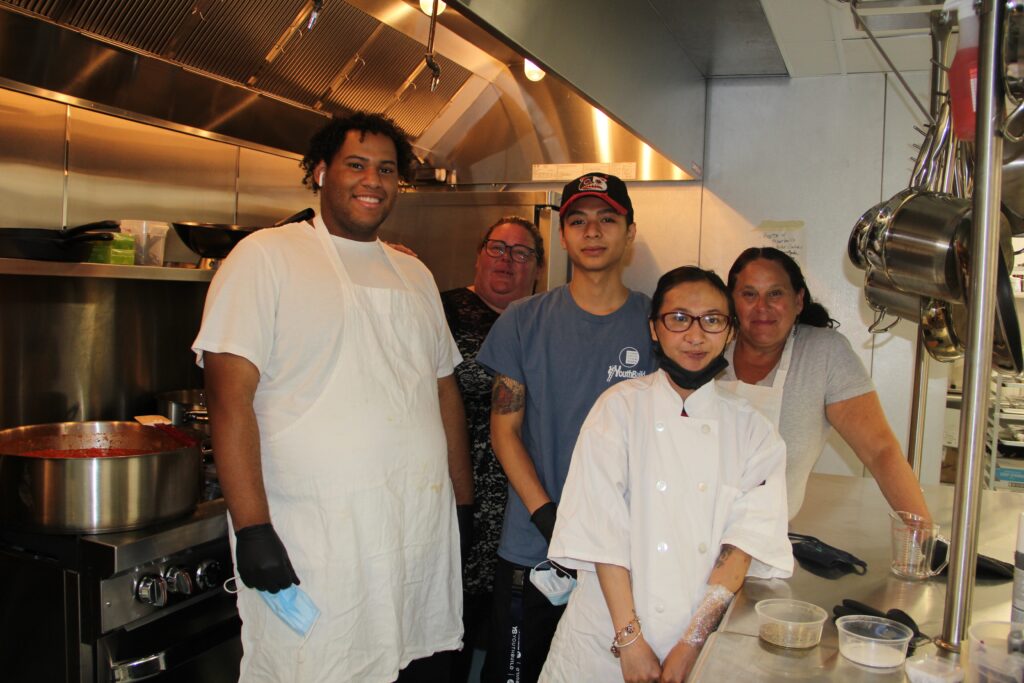
Cooking Up Success at Youthbuild
By Soben Pin | June 22, 2021 KHMER POST
“They’re hungry all the time. It was amazing when we started to serve breakfast, kids started to show up, then they wanted to do their math homework and wanted to work,” said Siobhan Sheehan, YouthBuild Program Manager of Community Teamwork, Inc.

Students from left to right: Misael Bruno, Zachary Saphangthong, Jasmine Touch, Siobhan Sheehan, YouthBuild Program Manager, and Anna Jabar-Omoyeni, Culinary Art Instructor. Photo by Soben Pin.
The program is funded by the U.S. Department of Labor since 2018, providing troubled youths an alternative path to job skills, while completing their GED equivalent certificate called “HISET.” It is considered a vocational training program, specifically targeting young people ages 16-24 who dropped out from high school, or are struggling to complete their traditional high school diploma, and in many cases also ran into trouble with the law.
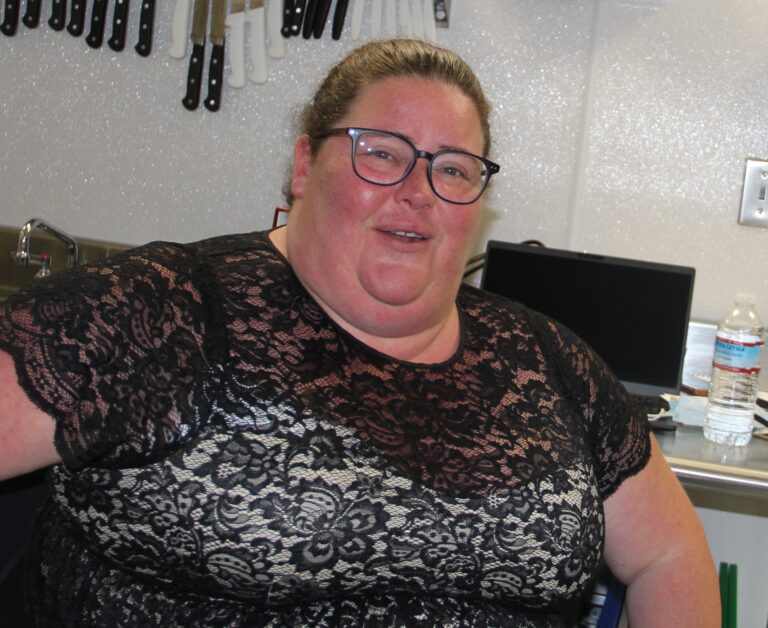
Siobhan Sheehan, Youthbuild Program Manager of Community Teamwork, Inc.
“Lowell High School is a very tough place to be” said Siobhan. “It is very hard to be among 4,000 other kids, you get shuffled in these numbers and you easily get lost. When kids have trouble at home, single parents who owes back rents, it puts pressure on these young people, they are hungry and worry about if they’ll become homeless. They have no one to turn to. We’re grateful for our parent organization, CTI — Community Teamwork Inc which has temporary shelter assistance if needed and rental assistance. We are able to help some of our kids get through it by coordinating between units and help their families” added Siobhan.
While at YouthBuild, a vocational training program which runs for one year with each cohort of about 20-25 young adults, they learn carpentry and culinary skills. Today, I visited the first state-of-the art kitchen that was recently finished. It is funded by Cummings grants that allowed the program to extend into serving the students lunch. “It makes a real impact on them and you can see it every day” said Anna Jabar-Omoyeni, Culinary Art Instructor. “It’s one thing to come here to learn, it’s another when you break bread together, it creates the type of bond that gives them a sense of family.” Anna who owned the famous La Boniche, a French cuisine in downtown Lowell on Merrimack Street that operated for 27 years. In 2014, she closed the restaurant. “I was blessed to do what I did for a long time but when you get to that age, (50), you know you couldn’t do it too much longer,” so Anna worked as a catering chef for two years before coming to CTI in 2018. “Working with these young people, it feels like this is what my lifetime work was meant to be, passing on my knowledge to the next generation. It’s fun and rewarding to see their transformation on a daily basis” said Anna.
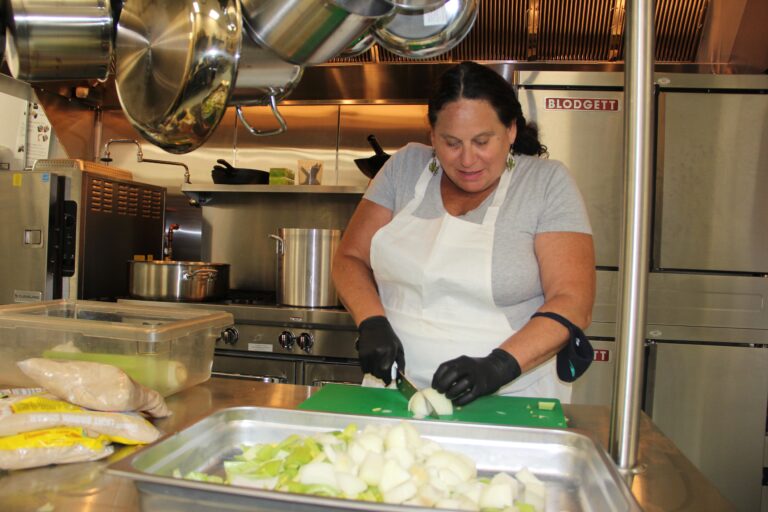
Anna Jabar-Omoyeni, Culinary Art Instructor.
With Anna, they learn how to debone a chicken, how to peel the onions in a professional way, aging the food, safety in food handling and sanitization. Every day they cook a different meal based on the menu chosen for that day. As part of the program, they also do community service by cooking for homeless shelters and charities.
Every week on Monday morning, they would pick up fresh produce for the week from the Merrimack Valley Food Bank. On the day I visited, a Thursday at noon, food was prepared for St. Paul Charities. They made pasta, individually wrap 75 hot meals and deliver to Elliott Church at 4 o’clock in the afternoon.
“The kids learn about the value of being a part of the community,” said Siobhan. “They went on the wrong path because they don’t feel the attachment to the community. This is where the carpentry program became very successful — attaching them to the community by helping build low-income family homes for Habitats for Humanity, and building garden beds for the community. “They feel proud and take ownership of what they have done for their neighborhood. They tell their friends and families that ‘I did that’” said Siobhan.
Today I met with Misael Bruno, 19, who has completed the program and now interning at Tremont Pizza in downtown Lowell. “It wasn’t that hard” he said. “They just show me how they do their sauce and the way they make pizza dough,” Anna glanced him with a smile and said “it’s not hard, huh”. Misael added with a confidence, “I think I’ll be likely to get hired after the internship.”
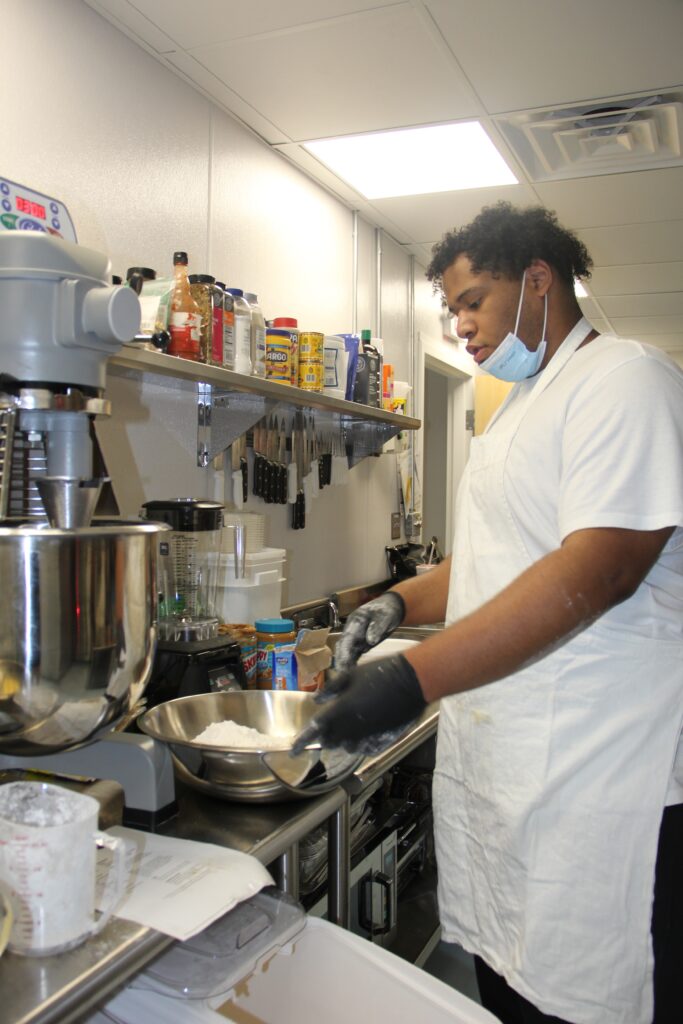
Misael Bruno, 19.
“When kids graduate from the program, they earn a ServSafe Manager certificate (OSHA 10) that allows them to sufficiently manage a kitchen, so it gives them an edge. The first student interned at Tremont Pizza, first started as a dishwasher, but when they found out he had this certificate, he was promoted to the kitchen right away” said Siobhan. “We’re thankful for this grant that allows us to pay the students a stipend to work with their potential employer, where they will learn the work ethics and the scopes of their working environment before getting the real job.”
The internship is from 4-6 weeks, 18 hours per week. Students also receive a small stipend of $240 every two weeks for participating in the one year training program. “We train them to have ‘mental toughness’, there are timesheet which they have to clock in and out, coming to work on time or no pay for no show, they have to show that they want it for themselves too, then we see if we’re a good match” added Siobhan. “I had them wear an overall during the first year because they didn’t dress properly for the workplace. We train them for a job in the real world.” As part of the program, they also do math and reading as part of their academic work and have to pass an exam to earn their HISET certificate.
One of the students, Jasmine Touch, is interning at Andiamo Restaurant & Bakery in Andover because she likes to bake. She worked at four Dunkin Donuts stores before and intends to use her training to further her culinary interest.
The 3rd student, Zachary Saphangthong, who is making pasta sauce during my visit, was named Junior Chief because he is good with his cooking. “We also know he is smart, but he intentionally failed the test several times so he can stay on the program. His story made me cry” said Siobhan.
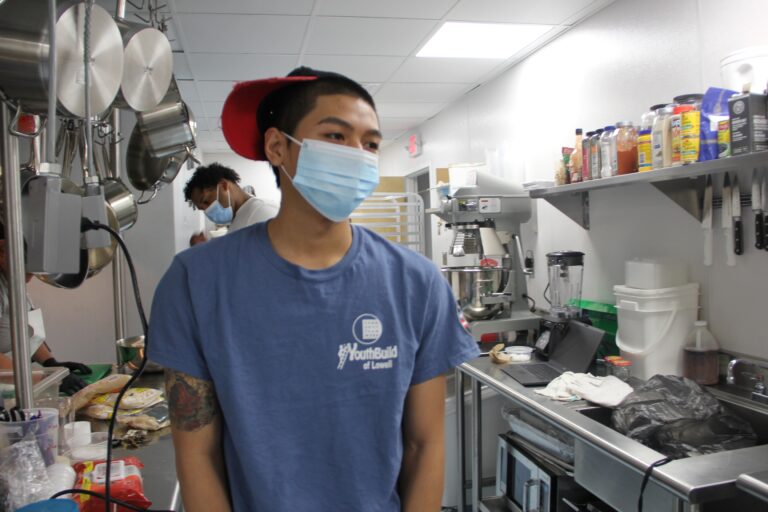
Zackary Saphangthong, 19.
He appeared in black jeans, worn low on his bottom, a cap turned to the side, and tattoos on his arms. Siobhan gave him a signal, he pulled up his pants and turn his cap, and put his mask on before entering the kitchen. A young handsome man indeed when the cap was turned to the front. He was open to tell me his story of why and how he found his path at YouthBuild.
“I ran into trouble with the law when I was 13. I got arrested for assault and battery and trespassing. I was under house arrest from 13-15”. At 15, Zackary was on the run, bouncing from house to house, selling illegal guns, he got caught and had to choose between going to jail or do community service. His choice was to do community service. After a few months at YouthBuild, he told Siobhan that he wanted a better life and wanted out of the gang life. That’s where his new journey started. Zackary is now 19 and is a Junior Chief working alongside with Anna. With help from the program, he got his driver license and saved enough money to buy his own car. He plans to attend Middlesex Community College in the fall to pursue an engineering major.
“Most kids here travel by foot. Most jobs require you to have a driver license and a car. It is nearly $1000 to help a student get their driver license which many kids can’t afford. It’s the poverty, when you don’t have that extra money it’s very hard to get a jump start. We are able to help 12 youths get their driver licenses, a few have jobs in Boston, others in other cities” said Siobhan.
The kitchen can hold up to six students at a time. Currently Anna teaches 12 students. They break into two groups and alternate daily. Six students per group. One day they do academics, the other they work in the kitchen. Beside making hot meals for local food pantries, they also have an opportunity to work alongside with Anna to provide state-of-art cooking and catering to many local events and fundraisers. It is the social enterprise part of the Culinary Art Program here at YouthBuild that is distinctive like no others. Anna catered 78 events in one year alone with her students prior to Covid-19. The largest party they served had 500 guests. “Next week, they will cater the Lowell House Open House cocktail party in which they get to dress up and serve in style” said Anna with excitement.
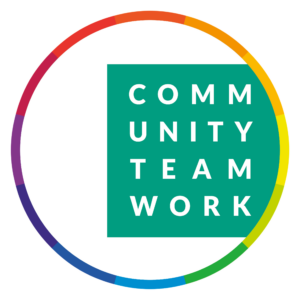
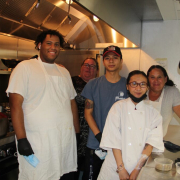


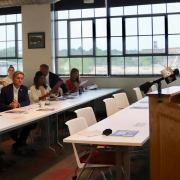
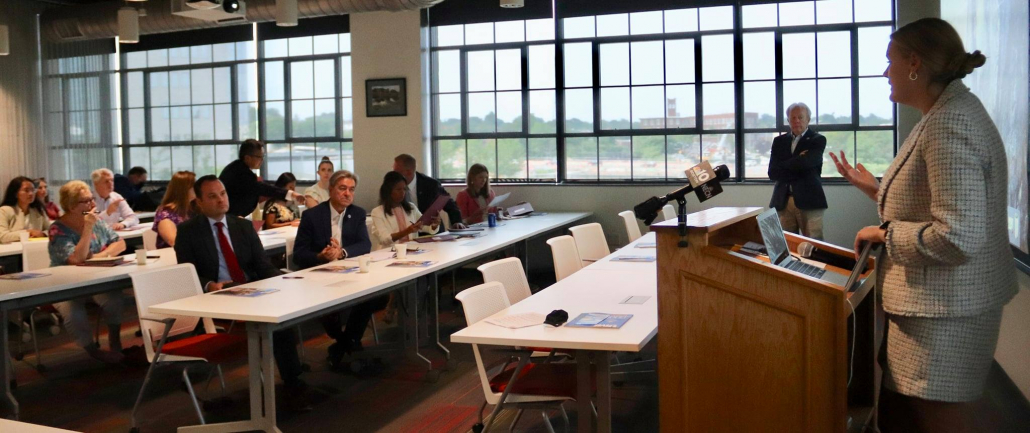
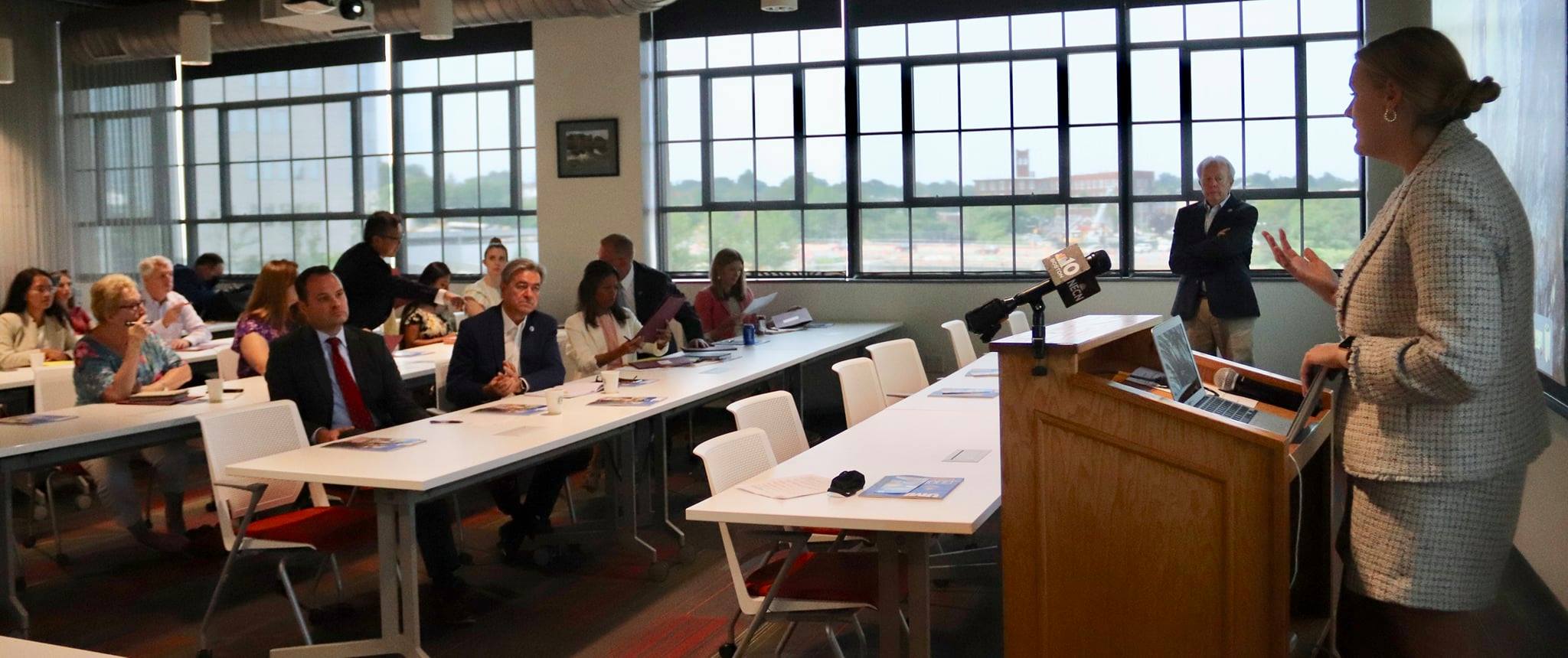
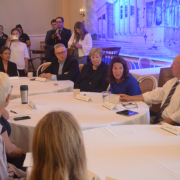
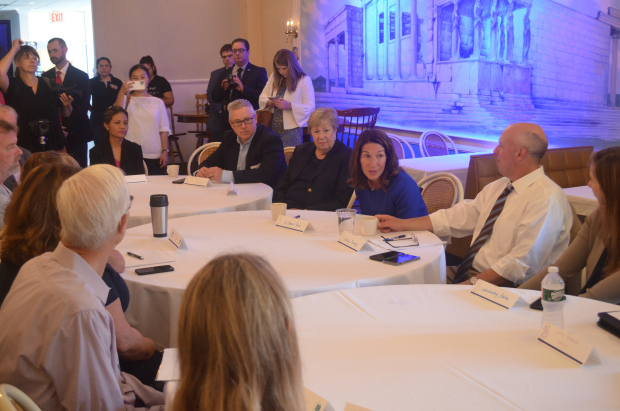
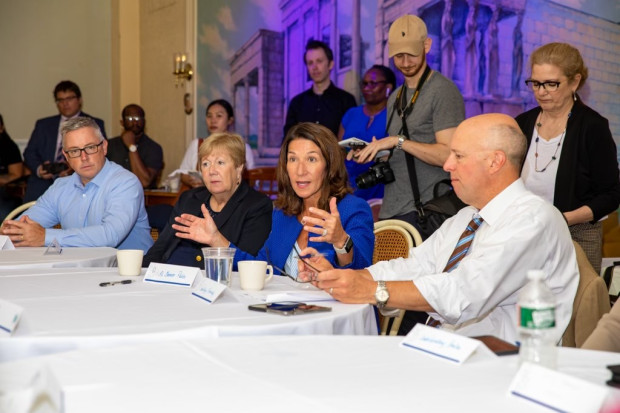
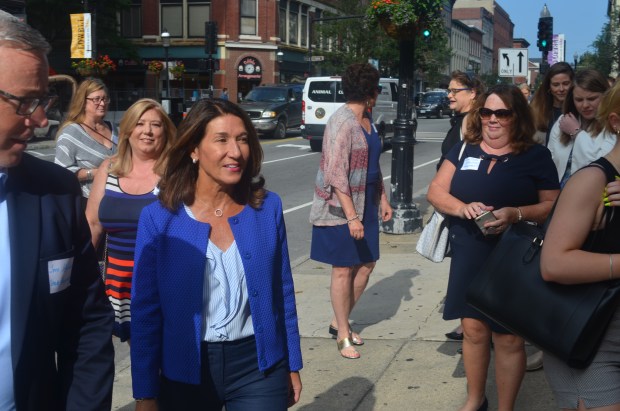
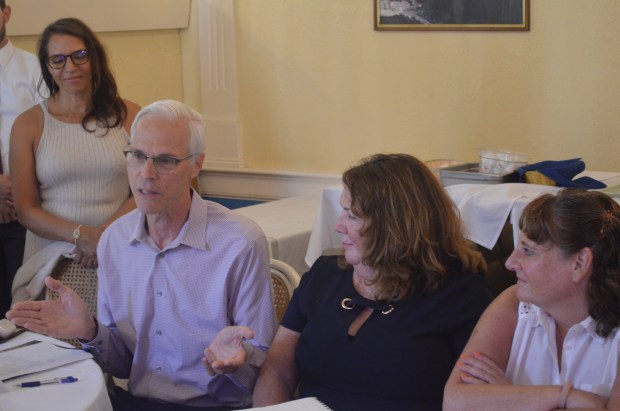
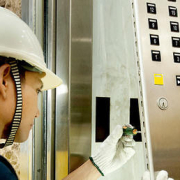
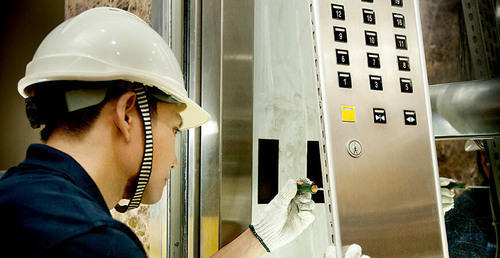


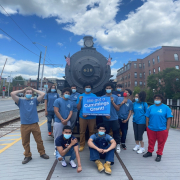
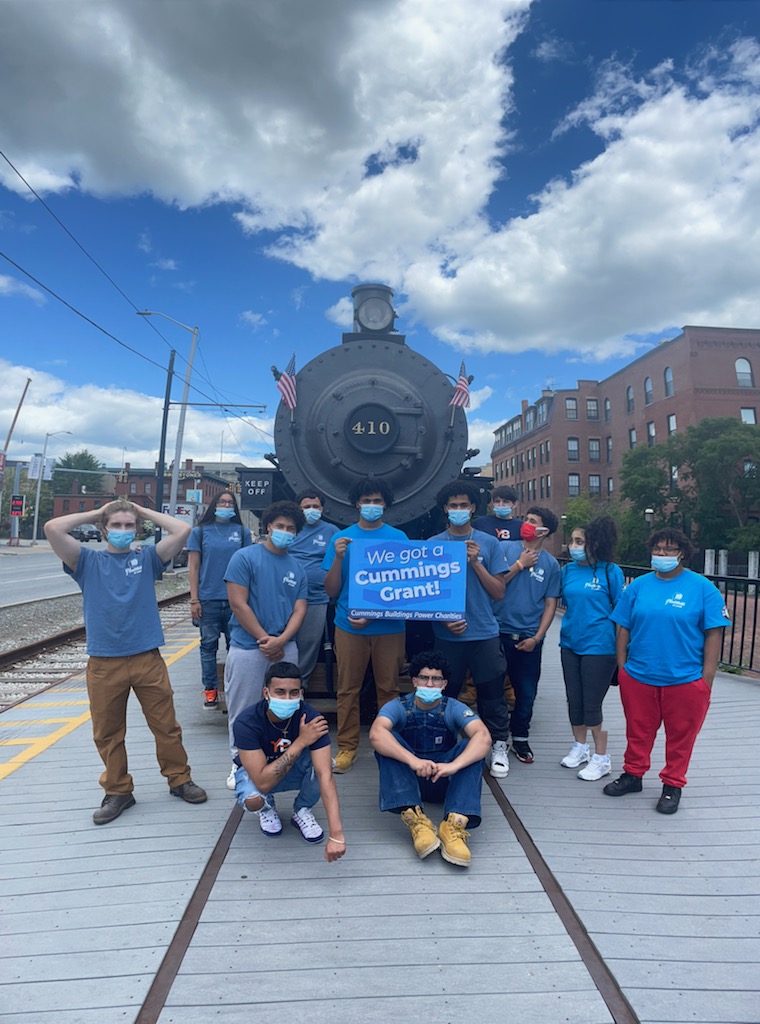
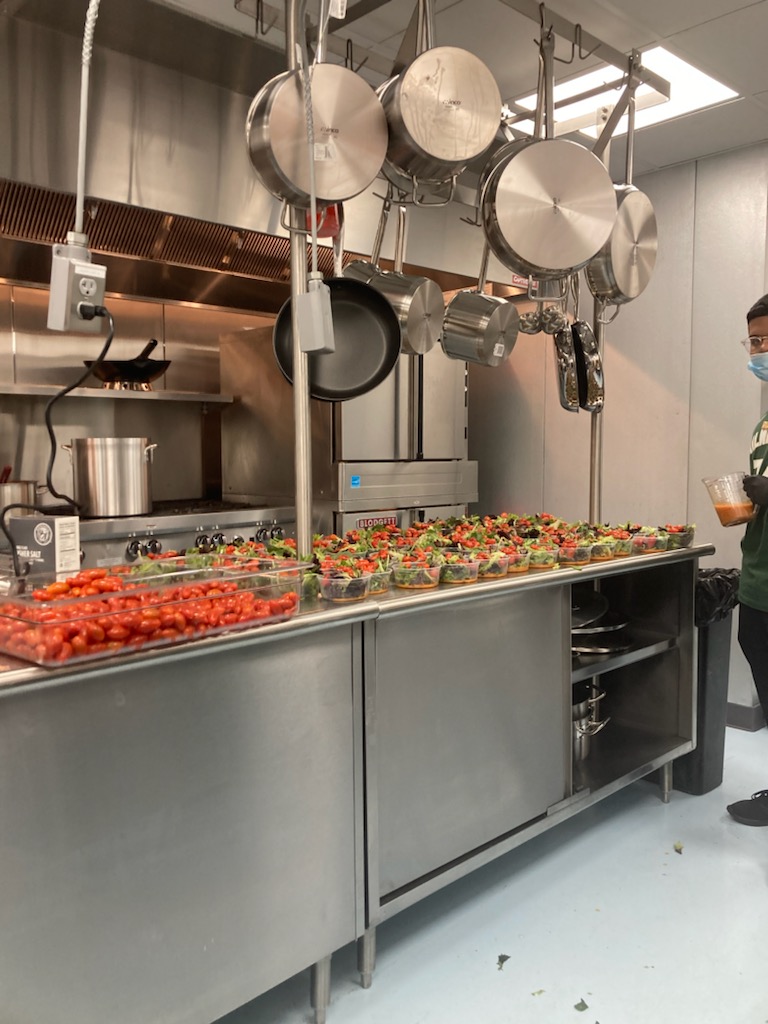
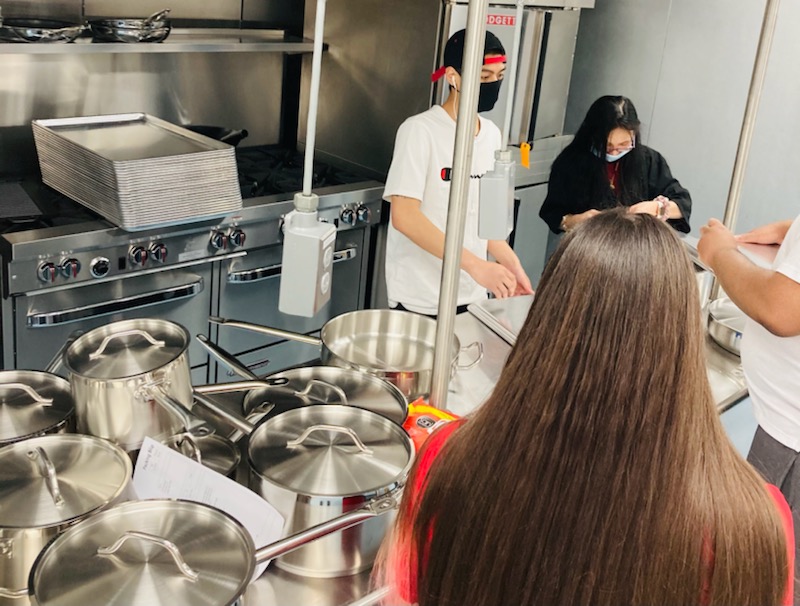


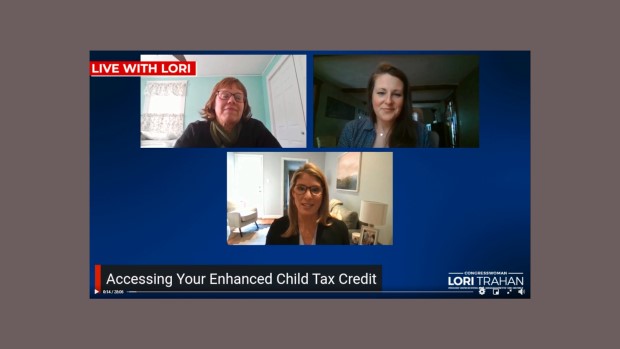



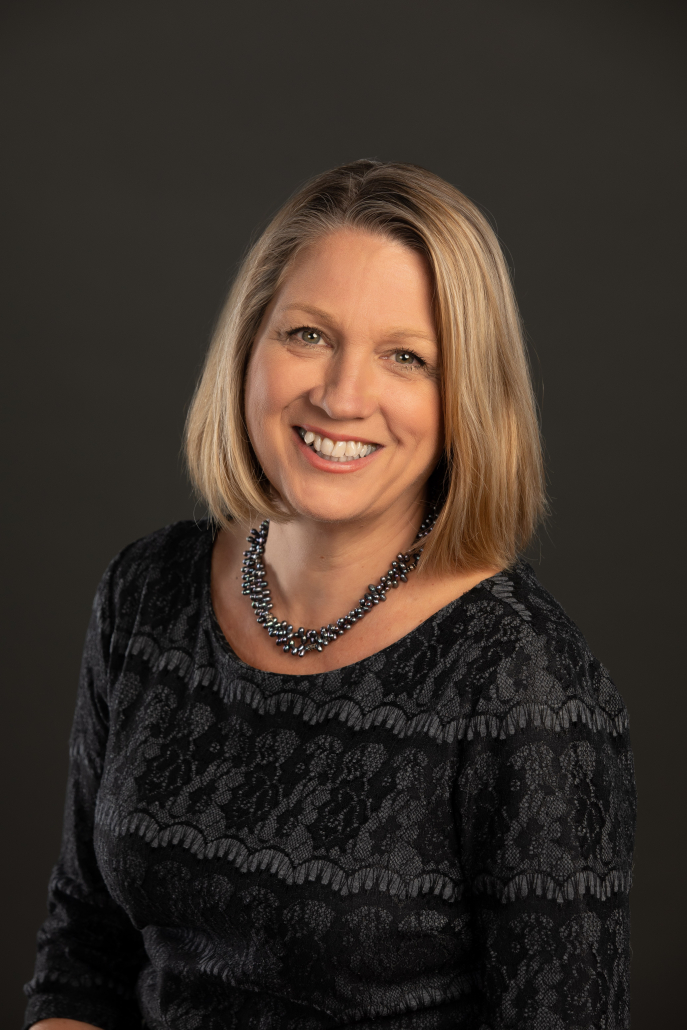
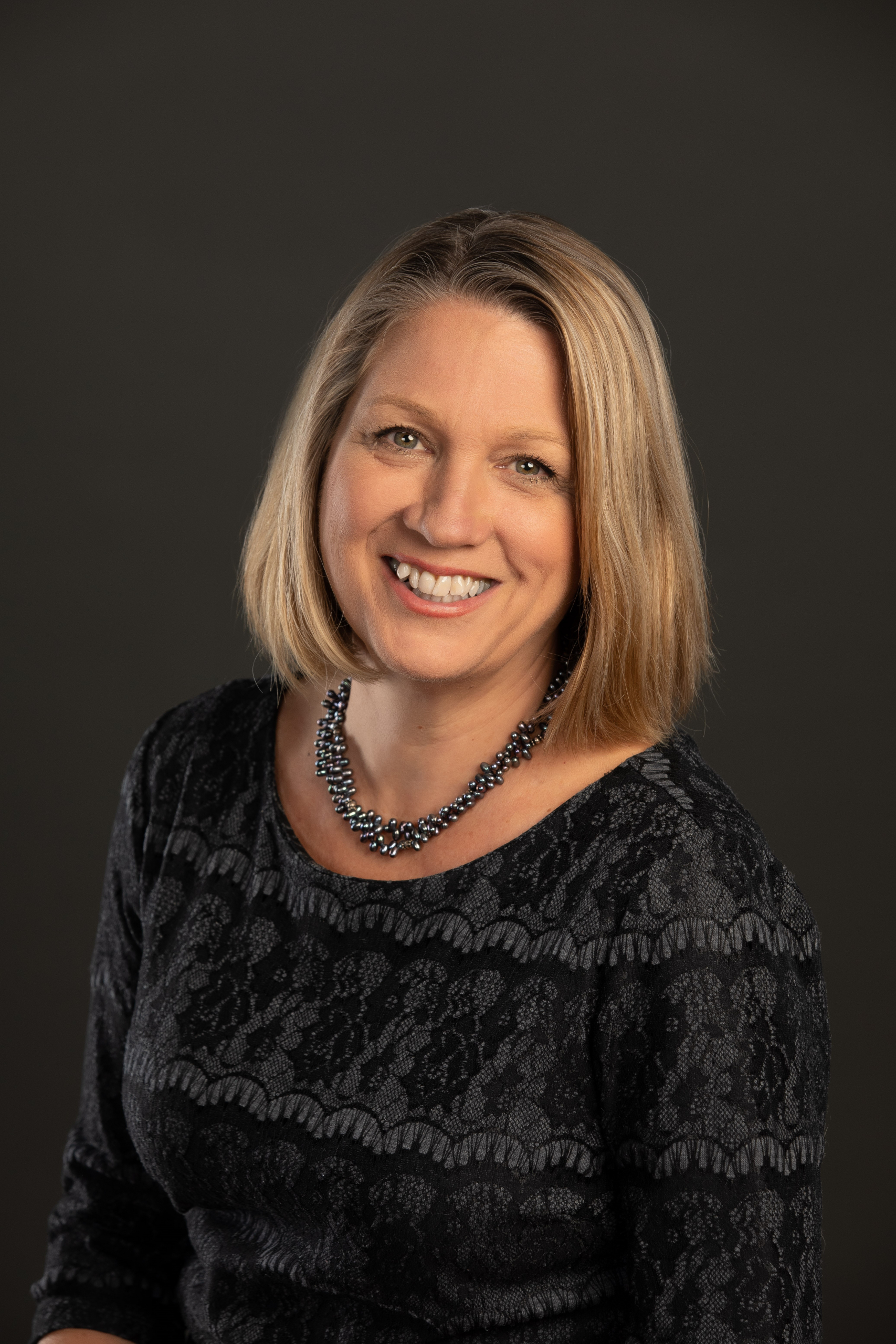 Lowell» Community Teamwork is pleased to announce that Barbara Warren has been promoted to the position of Division Director of Housing and Homeless Services.
Lowell» Community Teamwork is pleased to announce that Barbara Warren has been promoted to the position of Division Director of Housing and Homeless Services.